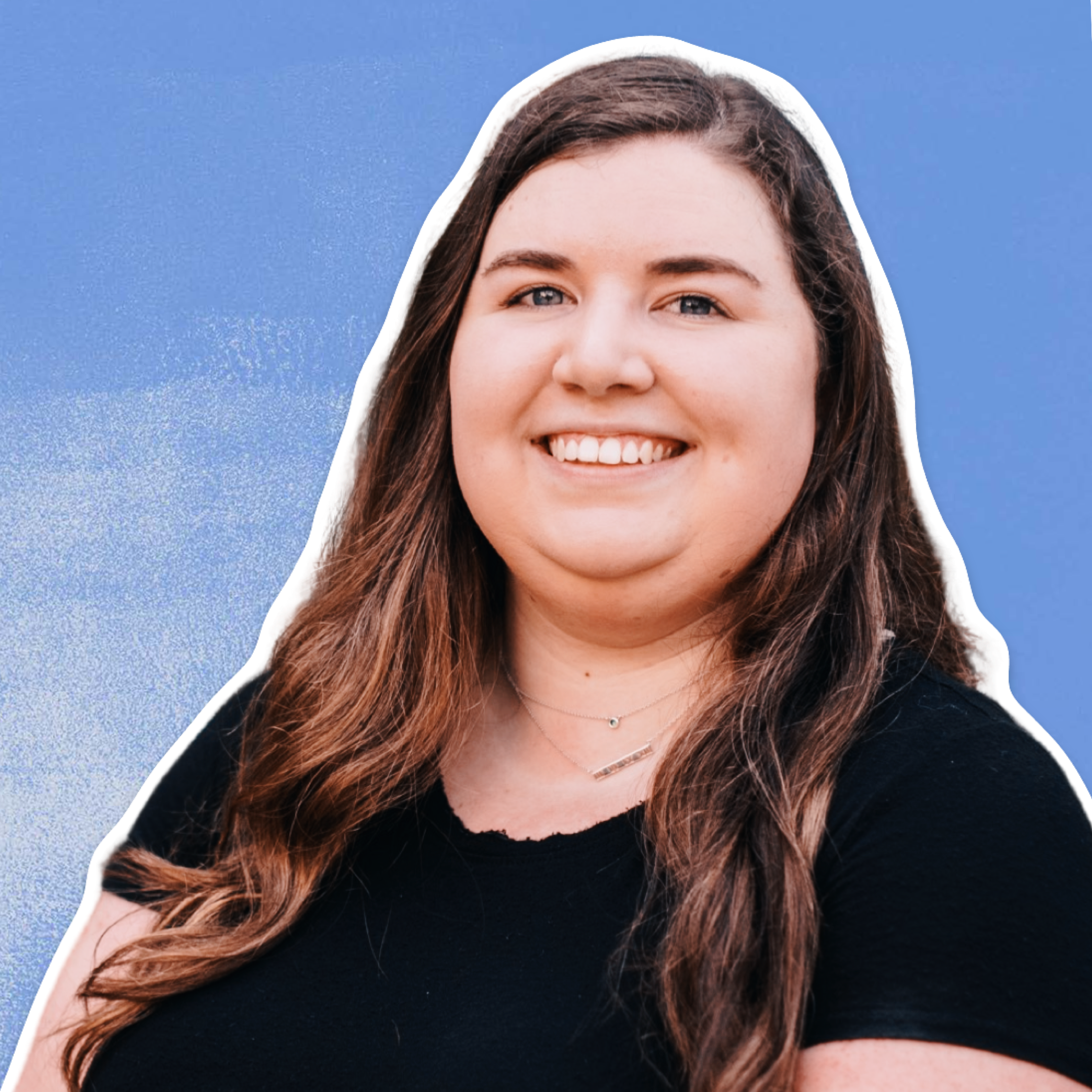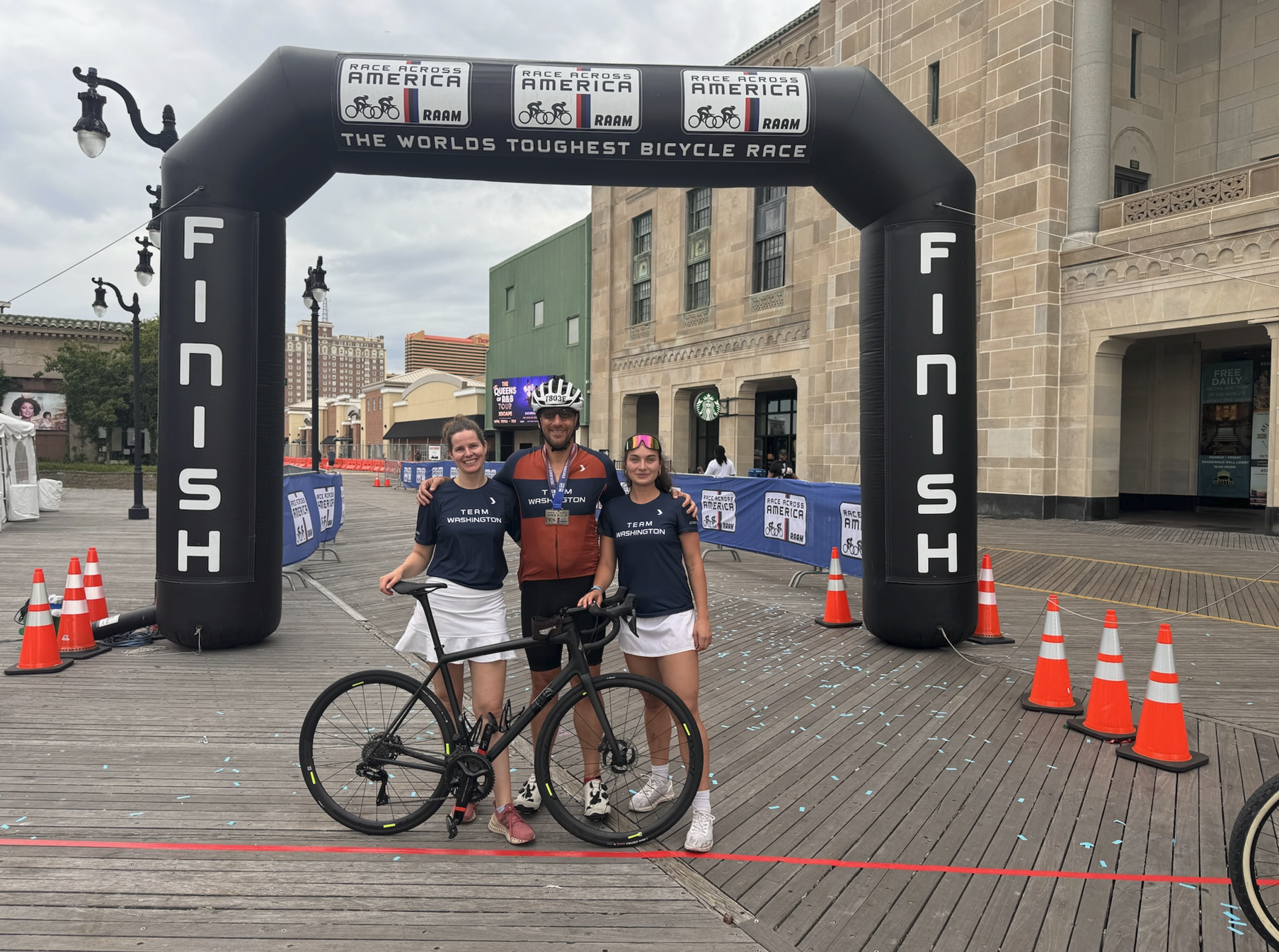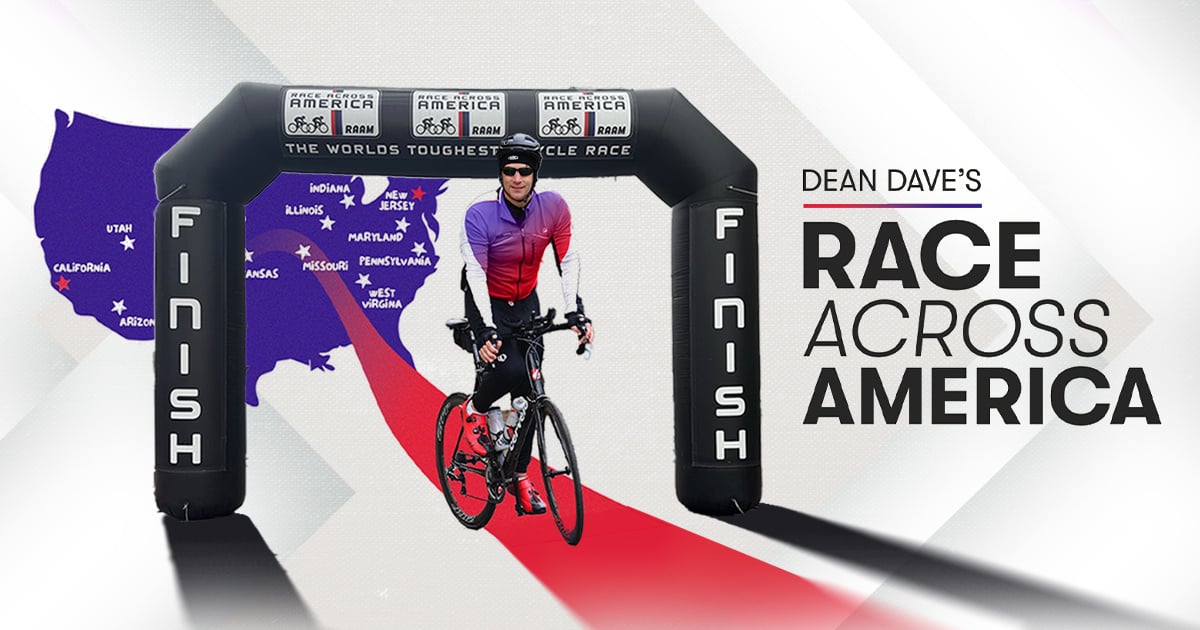
Anna Morcerf
Communications Manager, Kogod School of Business
The Race Across America (RAAM) is a testament to human endurance and camaraderie, challenging participants to push beyond physical limits while forging deep bonds. Individual riders and/or teams ride from Oceanside, CA to Atlantic City, NJ, relay-style, riding 24 hours a day for up to nine days through the heat, rain, and hills, crossing 13 states, the desert, Rocky Mountains, and hills of Appalachia. For Team Washington—comprised of eight team members, including Kogod School of Business dean Dave Marchick and Kogod alumnae Natalie Oliver and Inken Ehlers—this punishing cross-country odyssey was not just about the miles covered. Paramount to the cycling itself was the pursuit to raise money for the American University students and athletes.
Kogod School of Business (KSB): What made you decide to take this ambitious bike trip? What was the process of putting together the team like?
Dean Marchick (DM): My longtime good friend Tim Punke called me earlier in the year and said, “Let's do RAAM! We can ride a few hours a day. We can see the country, visit national parks, walk Main Street in small towns, and have fun.” Neither he nor I knew what we were signing up for. It was pure misery–the hardest mental test of my life. Tim also recruited his amazing family—his wife Lori and three children—Jack (17), Tucker (15), and Kiki (13), as well as two prominent attorneys, Brian Pomper and Paul Balkan. Kiki is the youngest female ever to complete RAAM. Since our team emanated from DC and Seattle, we called ourselves “Team Washington.”
KSB: Team Washington also included two crew members, Natalie Oliver and Inken Ehlers, both MS in Sustainability Management alums. Natalie and Inken: How did you both decide to work on the crew for this race?
Natalie Oliver (NO): During a “hike with the dean" event for the sustainability club, Dean Dave invited me to join his team for a cross-country bike race, joking that my soccer background meant I wouldn't mind being around stinky people! I thought, “why not?” I’d see the country, spend time outdoors, and meet cool people. Little did I know I would sleep little, drive most of the day, and only eat tortilla and hummus wraps!
Inken Ehlers (IE): When Natalie asked if I wanted to join the crew for the Race Across America, I immediately said yes. As someone who is not from the US, I found it an amazing opportunity to see the country while taking on an exciting challenge. I am incredibly grateful to Dean Dave and the rest of the team for trusting me with this responsibility. This was my first experience with something of this scale, and in hindsight, it’s probably best that I did not fully grasp just how intense it would be when I agreed to join!
KSB: What were your responsibilities as a crew member, and what was the experience like?
NO: Our responsibilities included planning biker schedules, managing transitions onto and off the road, ensuring bikers had radio communications, water, lights, and gear, and assisting with hydration and meals. I drove about 15 hours daily, following bikers and pulling over on busy interstates to wait for them. I also navigated using our RAAM route book to keep bikers on the strict route. Keeping the truck and motor home organized and preparing meals was crucial, especially since our eight-person team only had two crew members, unlike other teams with 10 to 15 crew members.
We were always planning and adjusting on the fly, as plans hardly ever stayed the same amidst a ton of chaos."

Natalie Oliver
Sustainability Management Alumna, Kogod School of Business
The experience was unforgettable—tiring, stressful, full of problem-solving, emotionally intense, thrilling, and exciting!
IE: We kind of kept the entire operation moving, so to speak—just not on bikes ourselves. We did everything from driving the truck and RV to managing logistics like daily and nightly distances biked and route navigation, keeping up to date with announcements, making hotel bookings, and stocking up on grocery runs. Cheerleading and trying to keep spirits high were also super important. There were the less glamorous tasks, like laundry, cleaning, and ensuring everyone ate something other than energy bars. Problem-solving was key and was especially difficult when sleep deprivation hit hard.
KSB: Dave, could you tell us more about your shifts on the bike? What ground did you cover? What were some of the highlights and challenges?
DM: We had two vehicles—an RV and a truck with two rows of seats, which we now call the “stink truck” because it really smells. The truck always stuck with the riders—driving across the country at 15 mph at a time. A rider would ride in front of the truck, then shift out for another rider. The RV leapfrogged ahead two or three hundred miles to a hotel where the team not riding would catch four to seven hours of sleep if they could. My favorite ride of the entire trip was Monument Valley in Arizona, the location of the famous scene where Forrest Gump stopped running. I had about a four-mile climb to the monuments—a slog but amazingly beautiful. And then I enjoyed a six-mile downhill where I hit 50+ mph. Crossing the Mississippi River was emotional for me because my great-grandparents emigrated to St. Louis to escape antisemitism, and my earliest memories with my grandfather were along the Mississippi. The low point (literally and figuratively) was in Kansas, where we faced 30-mile-an-hour headwinds and rain. At that point, I definitely felt we would fail. I honestly wanted to quit and come home.
KSB: What about the trip as a whole—what were some memorable moments, and how did the team work through the extreme physical (and mental) challenges of this undertaking?
DM: It was one of the hardest things I have ever done. The mental challenge was definitely more significant than the physical challenge. For example, my longest day on the bike was 82 miles with about 4,000 feet of elevation, albeit in 105- to 110-degree weather. The harder part was pulling three all-nighters out of eight nights and the concentration required to navigate using a physical map while protecting the biker in front of the car. Since we were pressed for time, we ate terribly; we lived on PB&J, salami and cheese roll-ups, and hummus. We stopped at Subway in Kansas, which was like a five-star meal for us. That was one of four prepared meals we had in eight days.

Team Washington's Kogod representatives at the RAAM finish line in Atlantic City, New Jersey. From left to right: Inken Ehlers, David Marchick, and Natalie Oliver.
KSB: Crew: What were some of the highlights and challenges of the trip from your perspective?
NO: That is a tough question. There were so many highs and a couple of lows. The biggest high was the bond the team created. We went from mostly strangers to feeling like family in a short (but also long) amount of time. Dave, Tim, Lori, Paul, Brian, Kiki, Tucker, Jack, and Inken—you inspire me. Another highlight was biking through Monument Valley, Utah, which I'd only seen on postcards. It did not disappoint and was by far my favorite drive—completely surreal.
The biggest challenge was the mental aspect. They say the easiest part of RAAM is the biking, and the rest is the hardest part—how true that was. Figuring out how to gel as a team and commit to one plan was challenging, but we were flying once we were all on the same page. Any doubt that we wouldn't cross that finish line in Atlantic City, NJ, completely flew out the window. We were going to do it and do it as a team.
IE: The trip was a rollercoaster of challenges and unforgettable moments. One challenge was managing diverse personalities and opinions without the luxury of team meetings; communication was mainly via text or short calls during hectic transitions. Sleep deprivation was an enormous challenge.
Working with just two crew members was demanding, but doing this with Natalie made all the difference. Despite the hardships, we shared memorable moments of bonding and laughter. Starting mainly as strangers, the 10 of us felt like a close-knit family by day two.
Pushing our limits and uncovering our capabilities was a significant highlight, showcasing the remarkable strength of teamwork and a shared adventure. "

Inken Ehlers
Sustainability Management Alumna, Kogod School of Business
KSB: Your team raised nearly $100,000 to support scholarships for AU students, and in the next few days you hope to raise more! What will that support look like?
DM: As of today, more than 215 donors have given $87,500 to support scholarships for Kogod students and student-athletes. These donations will change students' lives in some modest way—enabling them to enroll in an experiential learning class abroad, helping with housing costs, and providing nutrition for student-athletes. I wanted to quit the race several times, but knowing I would let donors (and thereby students) down pushed me to finish. I am grateful for their support.
KSB: What are your takeaways learned from the experience? Do you think you’ll ever take on something like this again in the future?
DM: The bond you create with your teammates when you do something challenging is remarkable. I have so much respect for the Punke family, Paul and Brian, Natalie and Inken. They are incredible people.
I made lifelong friends with two Kogod MS in Sustainability Management graduates. I probably spent 14 hours a day in a truck with Natalie (Inken’s schedule and mine were opposite). You really get to know someone when you spend that much intense time together. Inken and Natalie are incredible, hard-working, fun, gritty, and intelligent young women with unlimited potential.
NO: This experience taught me that I can achieve anything I set my mind to. I learned to stay composed in highly stressful environments and honed my leadership skills. Heart and perseverance pushed our team to cross the finish line. I'm lucky to have been part of this incredible journey with such driven, thoughtful, and light-hearted individuals (my tummy still hurts from all the belly laughs). I 100 percent plan on doing something like this again. This trip opened my eyes to the limitless experiences I can have through endurance challenges. I'd love to Race Across America one day as a biker, and maybe my former team, including Dean Dave, will be part of my crew!
IE: Being part of RAAM taught me so much about resilience and teamwork. We faced challenges head-on, united by our shared goal of crossing the finish line, and I was amazed by our ability to problem-solve and support each other through it all. The optimism and determination everyone showed was truly inspiring.
As for the future, I am absolutely up for another adventure like this. The bonds we formed, and the personal growth I experienced, have left me excited for more challenges that push us to our limits and bring out the best in each other.
KSB: What’s next for you this summer?
DM: My tush will be sore for several months. I want to break some binge-watching records this summer—a new goal.
NO: I plan to live out my dream! I recently signed with a professional soccer team, Bornova, in Izmir, Turkey. I leave mid-July—quick turnaround! I'm beyond excited about this opportunity and can't wait to travel and do what I love. Cheers to ends and new beginnings!
IE: Sleeping and eating are my top priorities right now. A win right now is a night of uninterrupted sleep without the panic of preparing bikers! While I don’t have any other trips planned, I will be transitioning back to regular life and focusing on intensifying my job search. As a current research assistant at Kogod, I aim to transition into the “real world” in the coming months.
Reflecting on their journey, Dean Marchick and his team, alongside crew members Nicole Oliver and Inken Ehlers, exemplify the resilience and spirit of teamwork that define RAAM. From navigating sleep deprivation to battling adverse weather, their story is one of determination, growth, and unwavering support—a testament to the transformative power of pushing boundaries. As they return to their lives enriched by this extraordinary adventure, their memories and achievements will continue to inspire others to embrace challenges and strive for greatness. Importantly, their experience will enhance the educational opportunities of Kogod students and student-athletes for years to come. The RAAM is over, but you can still donate to the Kogod Dean’s Fund in support of Team Washington here.
